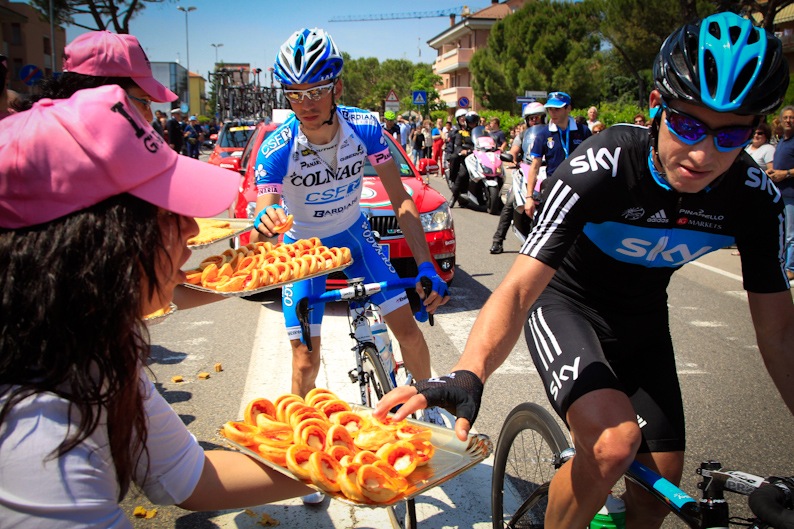
Diet and nutrition are important for cyclists of every ability, whether they are professionals in the midst of training for a race, weekend cyclists getting ready for a charity ride, or occasional riders preparing for an active cycling event.
Cycling is a great way to stay fit and good nutrition is important to help you become faster, healthier and stronger.

Here are some tips to ensure you stay in tip-top condition when pedalling:
- Consuming the right amount of calories
- If you cycle regularly, increase your calorie uptake.
- However, don’t overindulge in your favourite treats or you may end up eating more calories than you burn while cycling.
- Stick to healthy choices and avoid overdoing the portions.
- Having a device that can monitor your calorie intake and the amount of calories burnt is both useful and effective.
- Fuelling up on carbohydrates
- Carbohydrates are the primary fuel source during moderate- to high-intensity exercise, including cycling.
- However, not all carbohydrates are created equal. The types of carbohydrates you eat will impact your energy levels and health differently.
- Opt for wholegrain, slow-release carbohydrates like brown rice that are packed full of nutrients, rather than refined sugar.
High or low GI?
The Glycaemic Index (GI) refers to the rate at which a food or fluid source increases blood glucose.
Foods with a high GI like potatoes increase blood glucose rapidly, while those with a low GI like oats (also known as “slow-burn” carbs) release glucose levels more slowly, ensuring you don’t suffer from a sudden drop in energy.
Are you getting enough protein?
It might often be called a muscle food, but protein also supports health, immune function and recovery – all key for cyclists.
- Meet your daily protein requirement by including more beans, pulses, lean meats, fish and low-fat dairy food in your diet.
- Include good fats and omit bad fats
- Fat is important in a cyclist’s diet as it is critical for health, performance and weight maintenance.
- Go for the good fats and not the bad fats, which are those normally found in meats and processed food.
- Good fats include polyunsaturated fats like omega-3 and -6, which are found in salmon, sardines, anchovies and spinach, and oil such as flaxseed, while monounsaturated fats like omega-9 can be found in foods such as avocados and nuts such as almonds and peanuts.
- Get the right vitamins and minerals
- When cycling or training regularly, it’s important to ensure that you are not deficient in any nutrients.
- Manage this by taking a good multi-vitamin supplement, but don’t overdo it.
- Remain hydrated
Drinking enough fluid not only supports better riding, but also translates to better energy levels.
Cyclists should ideally be drinking additional fluid to match any loss during riding. Electrolyte drinks are also good when on the road.
Before cycling intensively
Top up your energy stores by consuming a carbohydrate meal about two to three hours before a sporting event.
Healthy options include oats, energy bars and wholemeal toast, with around 500ml of fluid.
Don’t overeat or you will feel bloated.
While engaging in intensive cycling
When optimally-fuelled before cycling, your body has sufficient carbohydrate stores for up to 90 minutes of moderate- to high-intensity exercise.
Top up your energy reserves with an energy bar and a drink, ideally between 30 to 45 minutes into the ride.
Eating this early will ensure your body does not struggle to digest food.
If you would like to fuel up later instead, switch to gels. Remember to drink at least 150 ml of water for each 10g of gel consumed.
After an intense session
The first 20 minutes after a ride is considered the optimal refuelling period as your body tends to absorb nutrients more efficiently then.
Consuming a carbohydrate-rich meal or drink at this point will improve your energy levels.
Combining this with at least 10g of protein will reduce your likelihood of getting injured, assist in muscle recovery and reduce muscle soreness.
Good examples here include a milk-based drink, a soy protein-enriched smoothie or a specialised recovery formula that can help provide extra immune support after a strenuous training or cycling session.
Enjoy cycling your way to health and aid it with the right nutrition at all times.
Source:-Star Health

Leave a Reply